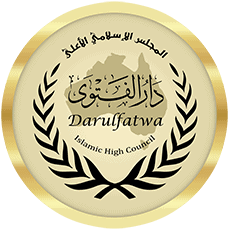Bismillaahir Rahmaanir Raheem
The high status of knowledge has been established very strongly in Islam through explicit texts in the Qur’an and the Hadith as well as in the writings of the scholars of Islam. Allah said in sooratul Mujaadalah, 11:
﴿يَرْفَعِ اللهُ الَّذِينَ ءامَنُوا مِنكُمْ وَالَّذِينَ أُوتُوا الْعِلْمَ دَرَجَاتٍ﴾
The verse means that Allah raises the ranks of those among you who believe and those who were granted the knowledge.
Also, Allah said in sooratuz Zumar, 9:
﴿قُلْ هَلْ يَسْتَوِي الَّذِينَ يَعْلَمُونَ وَالَّذِينَ لا يَعْلَمُونَ﴾
The verse means that those who know the Islamic Knowledge are not equal to those who do not know the Islamic Knowledge.
High Rank of `Ulamaa’
Also soorat Faatir, 28, means that those who have the knowledge fear Allah the most.
﴿إِنَّمَا يَخْشَى اللهَ مِنْ عِبَادِهِ الْعُلَمَاءُ﴾
The Prophet, mercy and peace be upon him, who is the best of the creation, in his hadith related by atTirmidhiyy, said:
*فَضْلُ العالِمِ على العابدِ كفَضْلِي على أدناكُم*
The merit of the true scholar over that of the true worshipper is like the difference in merit between Prophet’s status and the status of the lowest Muslim.
The difference in merit between the Prophet, mercy and peace be upon him, and the lowest Muslim is extremely great and likewise is the difference between the true scholar and the true worshipper, i.e. the scholar who satisfied the conditions of being a scholar, and the worshipper who satisfied the conditions and integrals of worshipping.
Protection from Fire
Allah said in the Qur’an in sooratut Tahreem, 6:
﴿يَا أَيُّهَا الَّذِينَ ءامَنُوا قُوا أَنفُسَكُمْ وَأَهْلِيكُمْ نَارًا وَقُودُهَا النَّاسُ وَالْحِجَارَةُ﴾
The verse addresses the believers: protect yourselves and your families from Hellfire which is fueled by people and stones.
Imam `Ataa’ Ibn Abi Rabaah who was among the followers of the Companions, interpreted that verse of the Qur’an and said:
One protects himself and his family from the torture of Hellfire by learning how to pray, fast, sell, buy, marry, and divorce.
With the knowledge of the religion, one knows how to speak, what to speak and for what reason one is speaking. One would also remain silent while knowing the reason behind remaining silent. With the knowledge of the religion, one knows how to be obedient to his parents and how to treat his relatives and neighbors kindly.
Obligation of Learning Islamic Knowledge
Imam alBukharriyy narrated that the Prophet, mercy and peace be upon him, said:
*مَن يُرد الله بهِ خيراً يفقههُ في الدين*
The one for whom Allah willed goodness, Allah guides him to become a knowledgeable person in the Religion.
Imamul Bayhaqiyy narrated that the Prophet, mercy and peace be upon him, said:
*طلبُ العلمِ فَريضةٌ على كلِ مُسلم*
Seeking the [obligatory] religious knowledge is an obligation upon every Muslim.
Learning the Religious knowledge is among the best things that one may spend one’s time doing. The safe path that protects a person and his family from Hellfire is by learning the Islamic knowledge, i.e., learning what Allah made obligatory upon us and learning what Allah ordered us to avoid.
So let us commit ourselves to the sessions and circles of the Islamic Knowledge. Listen, learn, comprehend, and ensure that the notes are accurate. In addition, try to pass on this knowledge to others exactly as was taken without any addition or omission.
Sessions of Knowledge
Imam Ibn Maajah related that the Prophet, mercy and peace be upon him, said to his companion Abu Dharr:
O Aba Dharr, if you go and learn one verse of the Qur’an it will be more rewardable for you than praying one hundred (100) rak`ah of the optional prayers; and if you go and learn a chapter of the knowledge, it is more rewardable for you than praying one thousand (1,000) rak`ah of the optional prayers.
Imam `Aliyy Ibn Abi Taalib, the fourth caliph, said:
Knowledge is better than money because knowledge protects you whereas you protect money. Knowledge rules over things, whereas money is ruled over. Money diminishes as you spend it, whereas spending the knowledge by teaching it to others increases your reward.
In Islam, the issue of knowledge is held in high regard. This knowledge is not any knowledge per se, but rather, the knowledge of the Religion of Islam.
Take Knowledge through Scholarly Lineage
Allah said in sooratul Anbiyaa’, 7:
﴿فَاسْأَلُوا أَهْلَ الذِّكْرِ إِنْ كُنْتُمْ لَا تَعْلَمُونَ﴾
The verse means that when Muslims do not know the Islamic judgment they ask the people of Knowledge (`Ulamaa’).
In what was related by Imam Muslim, Imam Ibn Sireen said:
This knowledge is part of the Religion, so look thoroughly at whomever you take your religion from.
Learning the Obligatory Knowledge of the Religion makes one able to discriminate between what is lawful (halal) and what is unlawful (haram), what is valid and what is invalid, what is acceptable and what is rejected, in addition to what is classified under the Religion as good or bad.
One should stop for a moment and remind himself of far simpler matters. If one was seeking a particular university, one would spend a great deal of time looking into and checking the different levels of universities to determine which was better. If one needed a treatment from a doctor, one would usually look for a recognized specialist; if one wanted a house to be built, one would search for the best qualified in that field. Most definitely the knowledge of the Religion is a far higher priority, and one needs to look thoroughly at whom he will take that knowledge from.
Knowledge and good manners
One will not become pious except by learning and practicing that which one learned. This means that one must learn the matters of the Religion and follow what one learned. The one who does this is the person who knows how to use one’s heart and other organs to obey Allah. By this, one will have good manners. One uses one’s hearing to obtain the knowledge, and one’s tongue to review and teach what one has learned.
Transfer the Islamic Knowledge
Imamul Bukhariyy narrated that the Prophet, mercy and peace be upon him, said:
*بلـّغوا عني ولو آية*
Muslims are encouraged to convey from the Prophet, mercy and peace be upon him, even if it was one verse.
Avoid the sins of the tongue
Among what one must avoid are the sins of the tongue and among the sins of the tongue are:
- Giving an Islamic judgment without knowledge: It is sinful for one to give judgments in the matters of the Religion out of one’s own opinion. This harms the one who does it. For example if someone says: “Such and such is allowed or not allowed,” while one does not know the Islamic judgment of whether it is allowed or not, one commits a major sin. Imam asSuyutiyy narrated that the Prophet, mercy and peace be upon him, said:
*من أفتى بغيرِ علمٍ فعليهِ لعنةُ اللهِ والملائكةِ والناسِ أجمعين*
Let the damnation of Allah, the angels, and all the people be upon the one who gives an Islamic judgment without knowledge.
- Refusing to teach the Islamic obligatory knowledge while there is a student who wishes to acquire it, and. An example of it is refusing (without a religious excuse) to teach the personal obligatory knowledge to a person who needs to learn it. Imam Ibn Maajah, alHaakim, IbnHibbaan narrated that the Prophet, mercy and peace be upon him, said:
*من سُئلَ عن علمٍ فكتمهُ ألجمَ يومَ القيامةِ بلجامٍ من نار*
The one who is asked to teach the religious [obligatory] knowledge and refrains from it (with no excuse) will be bridled with a reign of fire on the Day of Judgment.
- Refraining from ordering with obligations (ma`roof) and forbidding prohibitions (munkar), if one is able. So, if someone sees another person, who listens to advice, leaving out the prayer, one is obligated to order him to pray, if one is able to do so.
- Among the horrible sins of the tongue also is contradicting Islam which would occur if the person utters statements mocking Allah, belittling the Prophet, mercy and peace be upon him, objecting to Islam, disputing with Qur’an, or rejecting the well-known Islamic rules which are commonly known to Muslims.
We ask Allah, the Exalted, to grant us the Islamic knowledge that is beneficial for us and to enable us to practice it correctly. Ameen.






